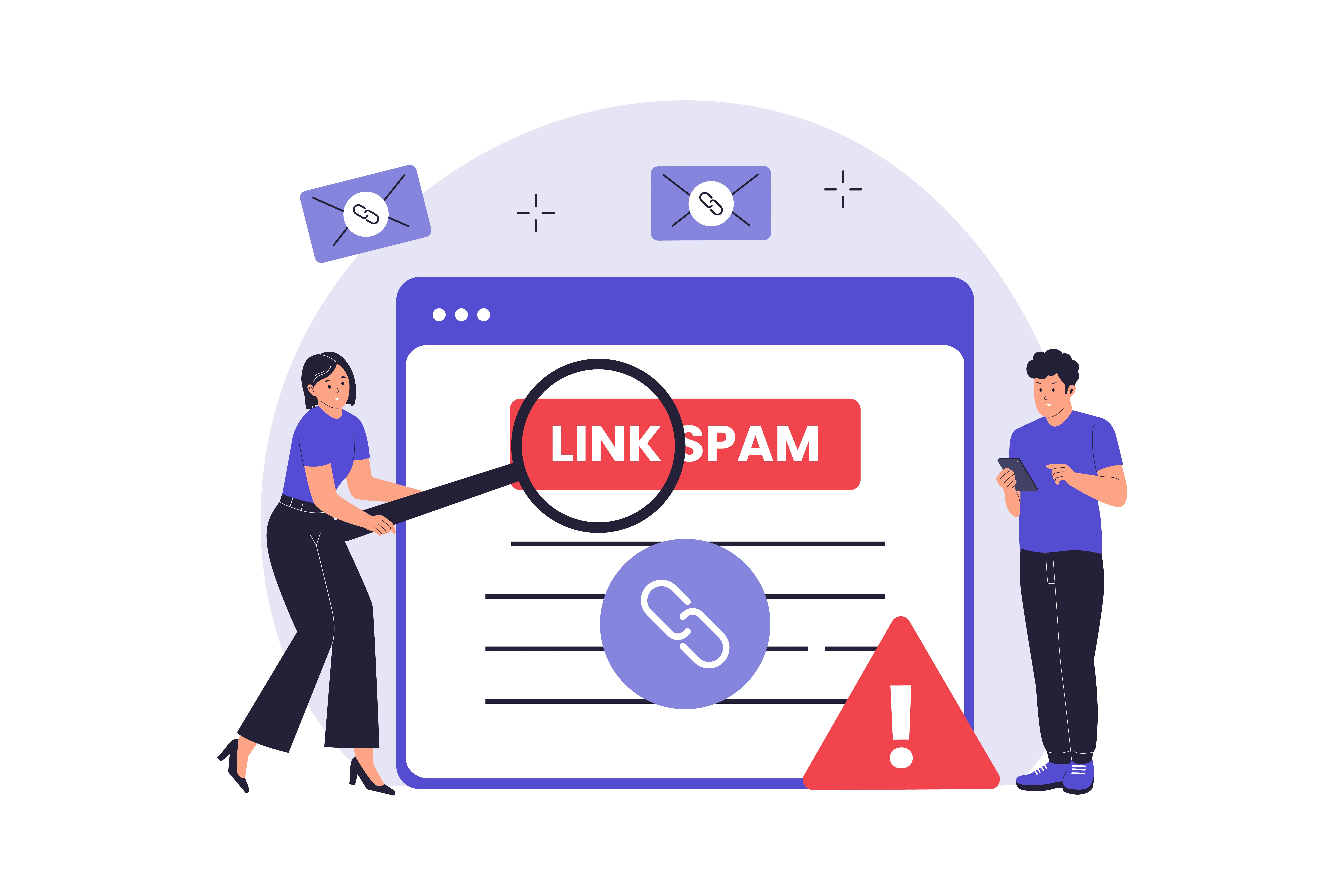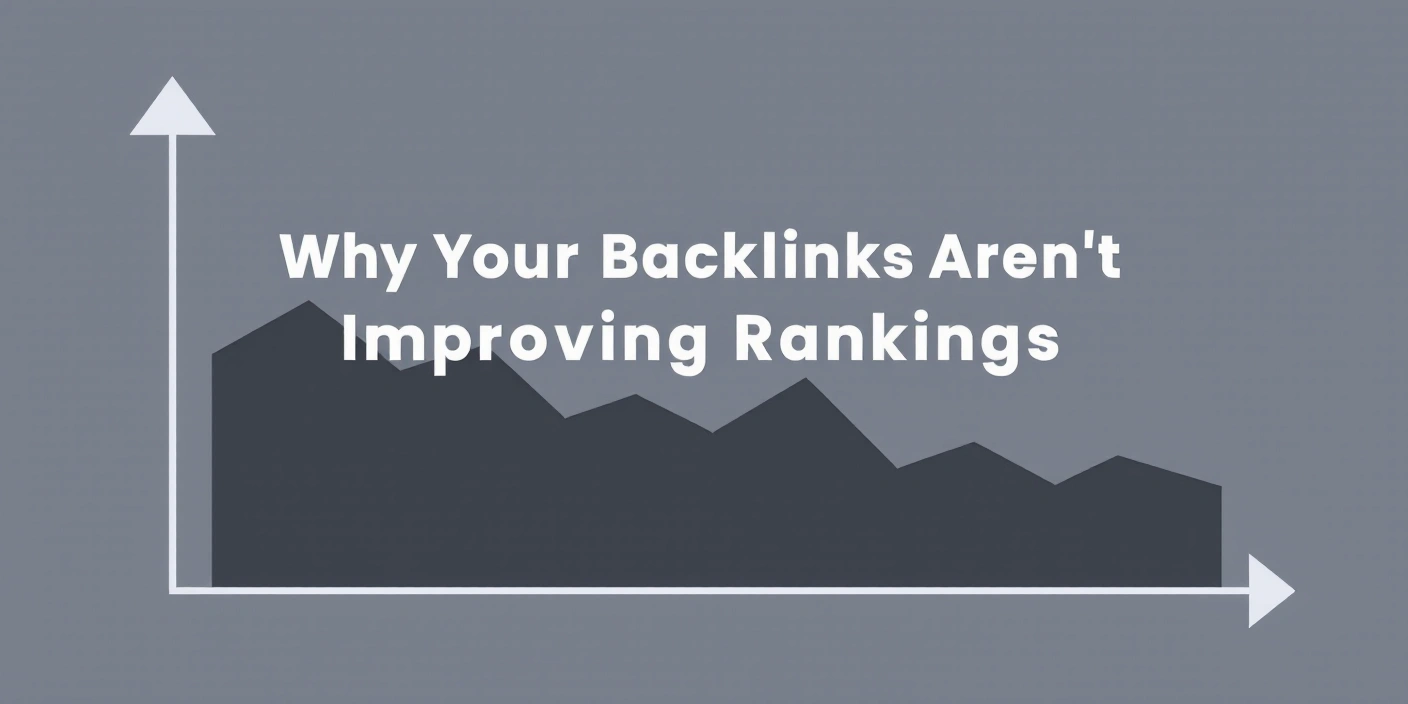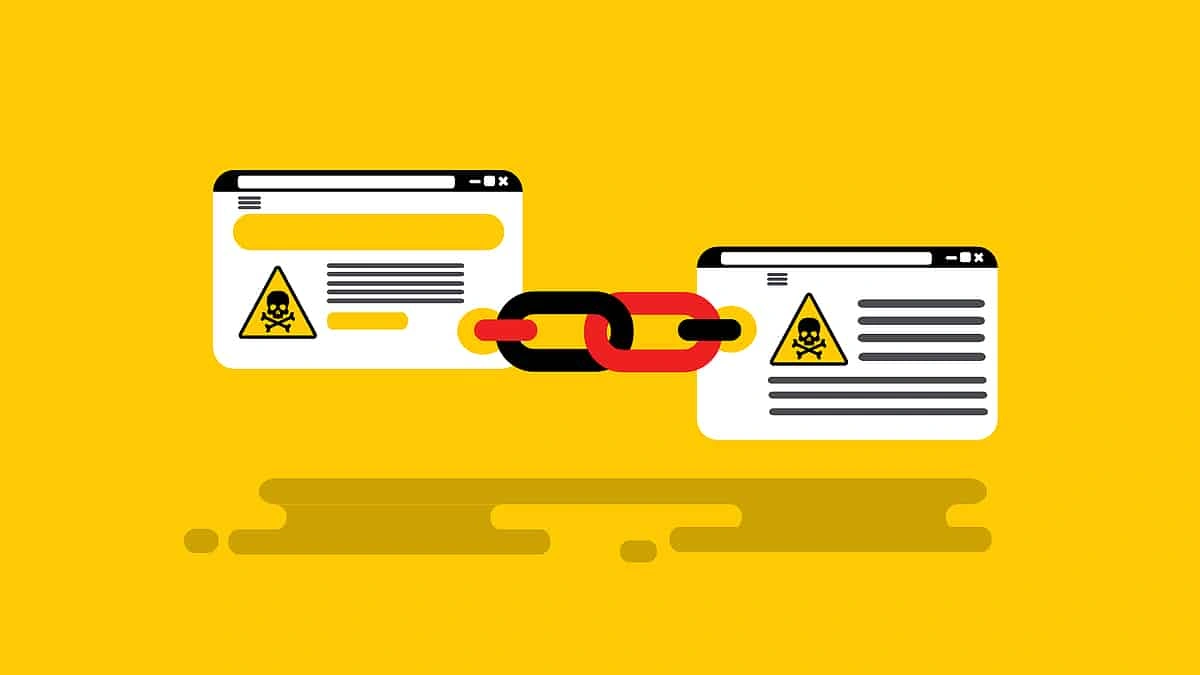25 Best Link Building Companies for E-Commerce in the UK (2026 Edition) - Ranked & Reviewed
%20%E2%80%94%20Ranked%20%26%20Reviewed.webp)
Introduction
E-commerce SEO in 2026 is a completely different landscape from what it was just a year or two ago. Google’s AI Overviews have pushed organic results further down the page, SERPs are increasingly influenced by brand authority and entity signals, and traditional “guest post” link building has all but collapsed as an ROI strategy.
Today, e-commerce brands need authoritative, relevant, editorial links to compete - especially in the UK, where search behaviour is highly commercial, and where retailers face strong competition from well-established legacy brands.
This guide is built for two audiences:
- UK e-commerce businesses are looking for the best link-building agencies to help them grow
- US retailers expanding into the UK who need British publications, UK-hosted links, and locally relevant authority to win visibility in British SERPs
Unlike pay-to-play “agency roundup” posts, this list is based on actual performance, innovation, authority, and e-commerce experience. We’ve analysed dozens of providers across:
- Link quality
- Relevance
- Editorial network strength
- Digital PR execution
- Pricing transparency
- E-commerce SEO understanding
- UK expertise
- White-label reliability (where relevant)
And because readers want the rankings first, we put the full list directly below - no scrolling through walls of text.
The Best Link Building Companies for E-Commerce in the UK (2026)
Disclaimer: This ranking is based on publicly available information, industry experience, campaign performance indicators, and an evaluation of each agency’s e-commerce link-building expertise as of 2026. No agency listed has paid for inclusion or placement, and the analysis reflects our independent assessment of capabilities, strengths, and relevance for UK and US e-commerce businesses.
#1 - Appear Online (Best Overall for E-Commerce Link Building in 2026)

UK-Based | E-Commerce SEO Specialists | Digital PR | Outreach | White-Label | US–UK Expansion Support
Cardiff Business Awards 2024 - Highly Commended: Digital Business
Appear Online earns the #1 position for one reason:
No other agency in the UK blends performance-driven link building, e-commerce SEO expertise, and modern digital PR execution as effectively.
Over the past few years, our agency has evolved from a fast-growing UK SEO shop into a full-scale authority-building partner for retailers, suppliers, manufacturers, local e-commerce stores, and global brands entering the UK market.
What Makes Appear Online Different
Unlike traditional link vendors or one-size-fits-all PR firms, Appear Online focuses purely on commercial impact:
✔ Relevance-First Link Acquisition
Every campaign starts with deep e-commerce research:
- Category intent
- Sub-category clusters
- Competitor link maps
- UK editorial opportunities
- Buyer-journey alignment
This ensures links actually influence rankings for high-intent pages - not just inflate “link count” in a report.
✔ Digital PR That Works for E-Commerce
Appear Online produces:
- Reactive PR
- Data-led stories
- Product-spotlight campaigns
- Seasonal angles
- Local & national UK outreach
- Journalist-ready reports
- Category-specific authority assets
Crucially, we don’t rely on recycled templates. Every digital PR angle is built for the ranking goal, not vanity coverage.
✔ Scalable Outreach (Without Low-Quality Links)
Our agency’s outreach team runs:
- Manual prospecting
- Real-site vetting
- Niche editing with editorial control
- Shopify/WooCommerce-compatible category link angles
- Multi-wave campaigns for major categories
This is not automated “spray and pray” link building - it’s controlled, strategic, and built to survive 2026 Google updates.
✔ US Brands Expanding Into the UK
Appear Online has become a go-to partner for US companies needing:
- Links from UK publishers
- British digital PR
- UK-facing trust signals
- British consumer ranking strategies
- GBP + UK “entity relevance” for local market entry
This makes them uniquely valuable to retailers trying to break into the UK market.
✔ Industry Awards & Recognition
In 2024, Appear Online was Highly Commended at the Cardiff Business Awards (Digital Business category) - reinforcing credibility and E-E-A-T.
✔ Full-Stack Link Building Services
Appear Online covers every modern link discipline, including:
- Digital PR (reactive + campaigns)
- High-authority link acquisition
- E-commerce category link building
- Branded link velocity development
- Local + national UK editorial links
- Product-led link building
- Competitor gap extraction
- Newsjacking
- Authority stacking
- Niche edits
- Blogger outreach
- Resource link building
- Shopify-specific link acquisition
- Entity building + knowledge panel reinforcement
- Data-driven PR angles
- AI-resistant content/link mapping
If a tactic works in 2026, we offer it.
✔ White-Label Link Building for Agencies
Appear Online is also widely trusted by:
- UK SEO agencies
- PPC agencies
- Branding studios
- US digital agencies targeting the UK
We provide confidential, reliable fulfilment under NDA - with scalable workflows and transparent reporting.
Ready to grow your e-commerce visibility? Contact us today, book a consultation, or jump on a call to get a bespoke UK link-building strategy.
#2 - Reboot Online
Data-driven, research-heavy PR campaigns known for high-authority placements and strong UK publication relationships.

#3 - Builtvisible
Technical SEO + content-led link building with a strong editorial process and deep enterprise experience.

#4 - Seeker Digital
Outreach-focused agency offering scalable link building and hybrid content + PR campaigns.
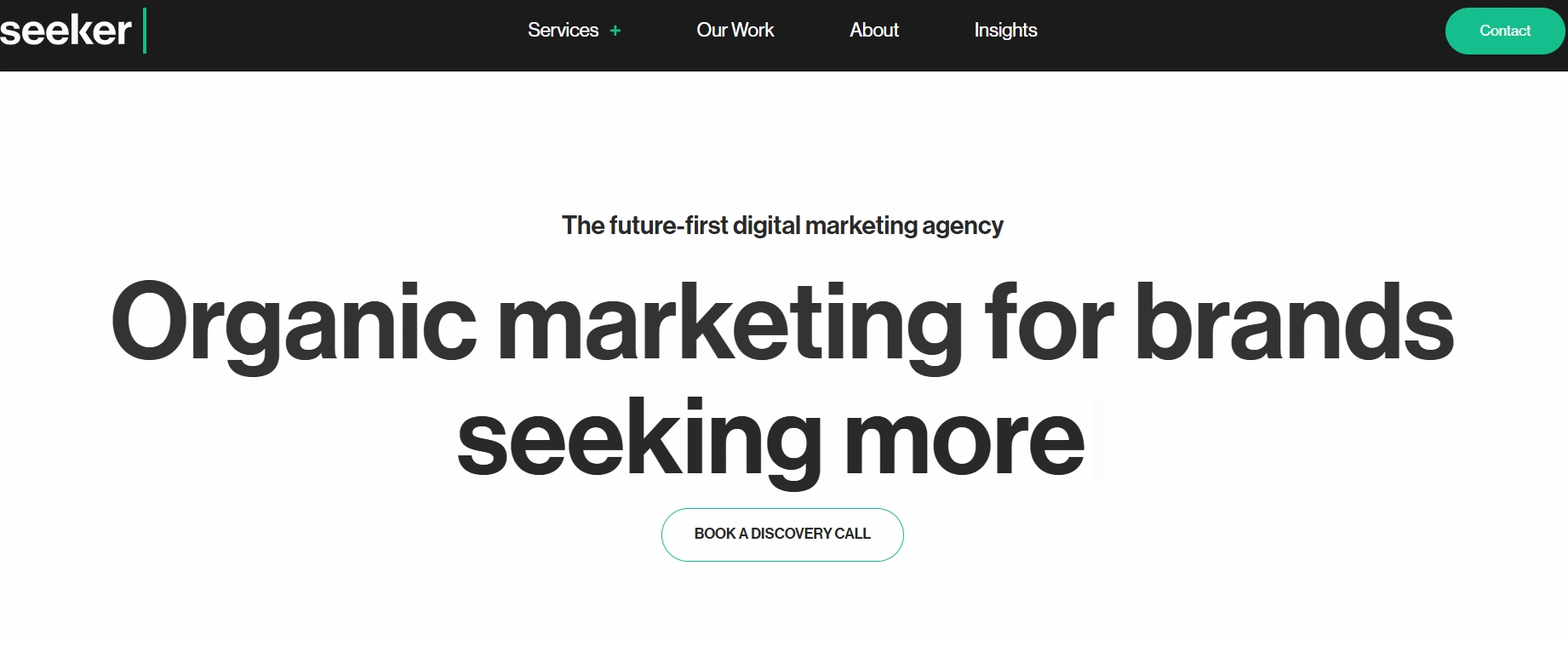
#5 - NOVOS
Pure e-commerce SEO specialists with strong experience in category-level link building for retailers.
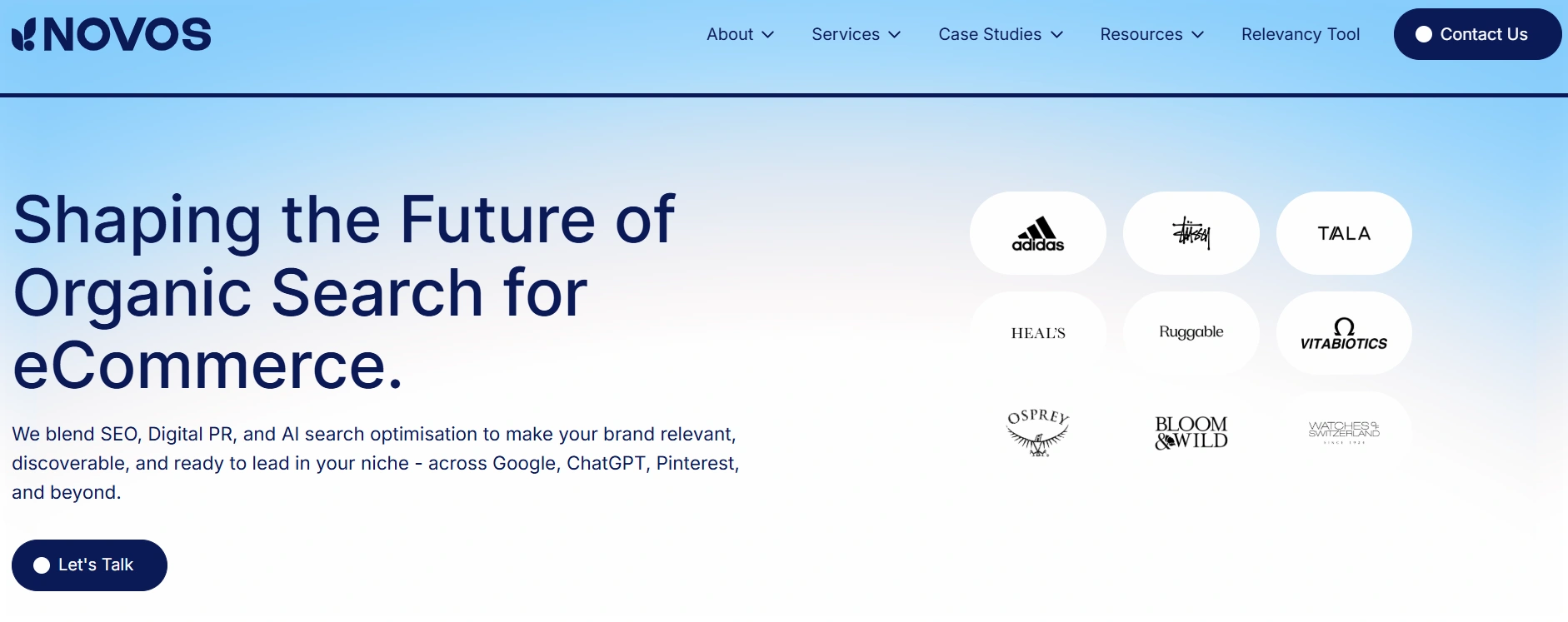
#6 - Rise at Seven
Creative digital PR with large-scale campaign execution across the UK and US media.

#7 - Screaming Frog
Technical powerhouse offering content-supported link acquisition with strong brand recognition.

#8 - Eskimoz
Start-up-focused SEO + PR with a solid outreach process for DTC e-commerce brands.

#9 Impression
Enterprise SEO team with digital PR capabilities and strong reporting frameworks.

#10 Moburst
PR-first agency offering consumer-facing media coverage suitable for lifestyle e-commerce brands.
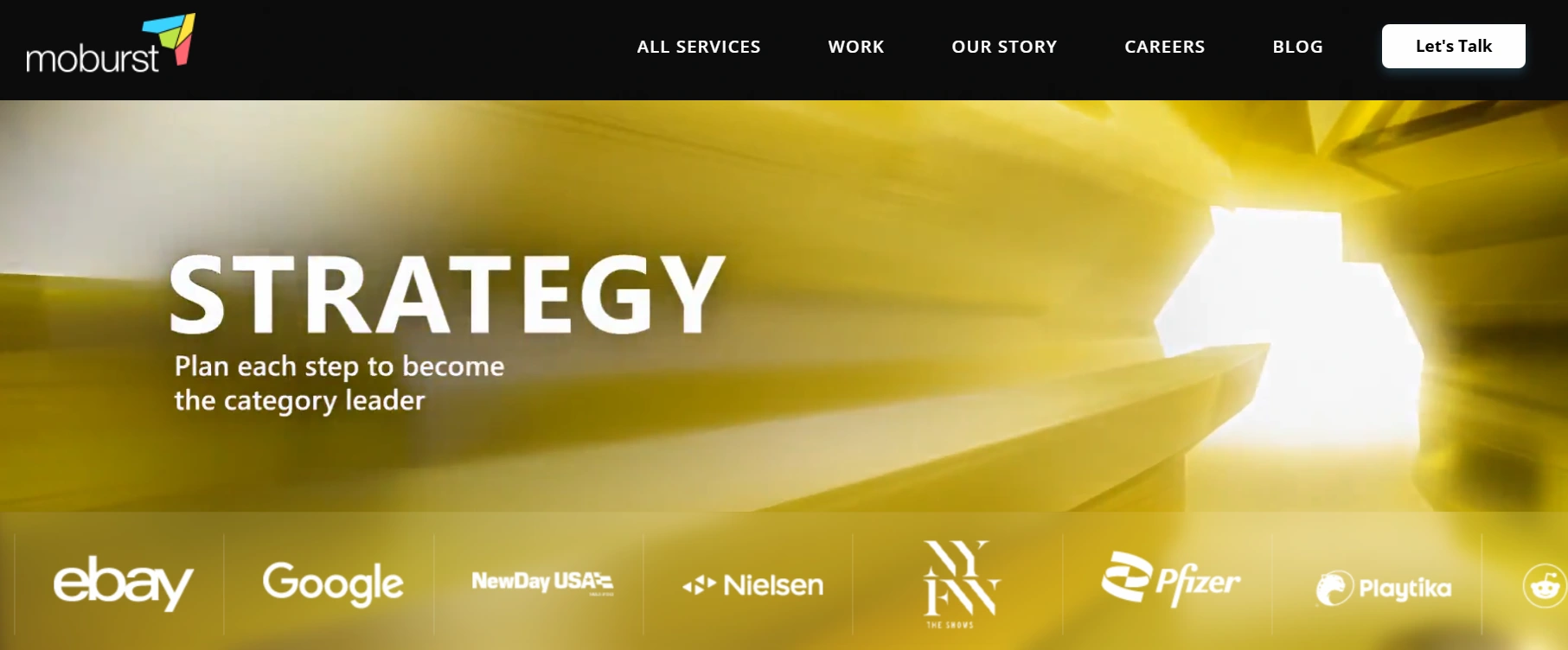
#11 - ClickSlice
Affordable, scalable outreach packages for SMEs needing consistent link velocity.

#12 - Blue Array
Well-established UK SEO agency with occasional digital PR campaigns and strong national brand trust.
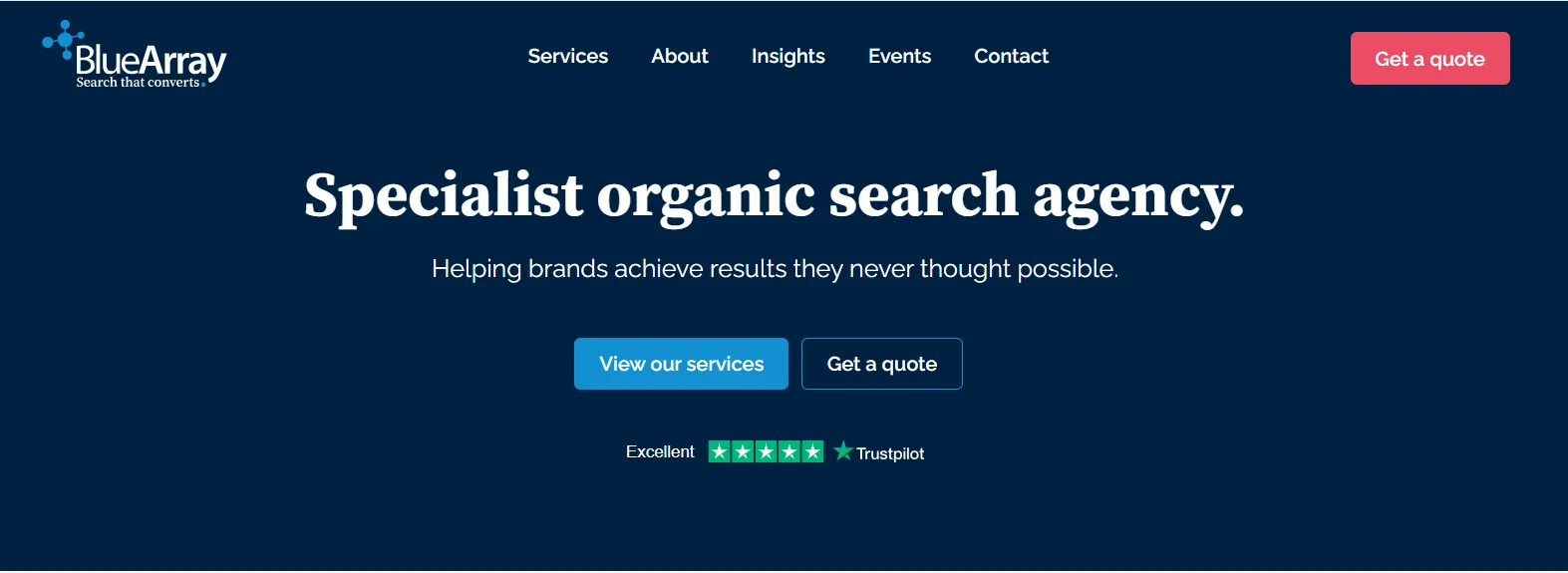
#13 - Kaizen
Content-driven digital PR with technical support and creative asset production.
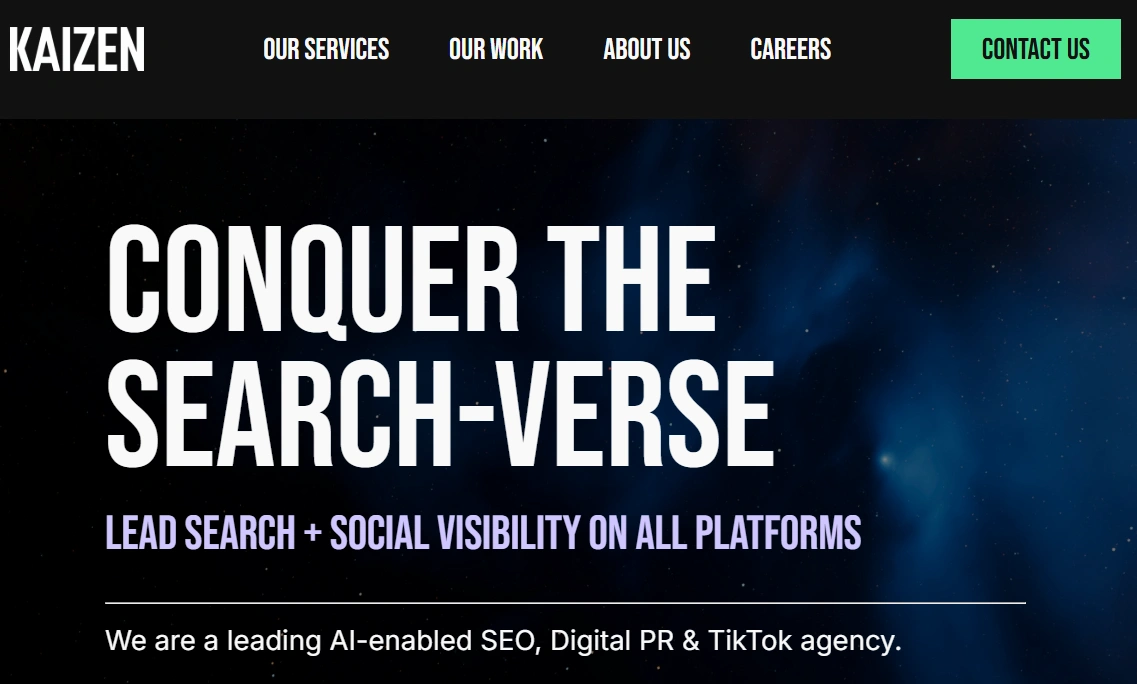
#14 - Distilled (Brainlabs)
Known for high-budget creative PR campaigns and enterprise-friendly workflows.

#15 - North Star Inbound
Hybrid UK/US appeal - strong for US brands wanting international link authority.

#16 - Verve Search
Award-winning PR team with high-complexity data journalism and creative storytelling.

#17 - Outreach Monks
Global link vendor with scalable packages (better for lower budgets; quality varies).
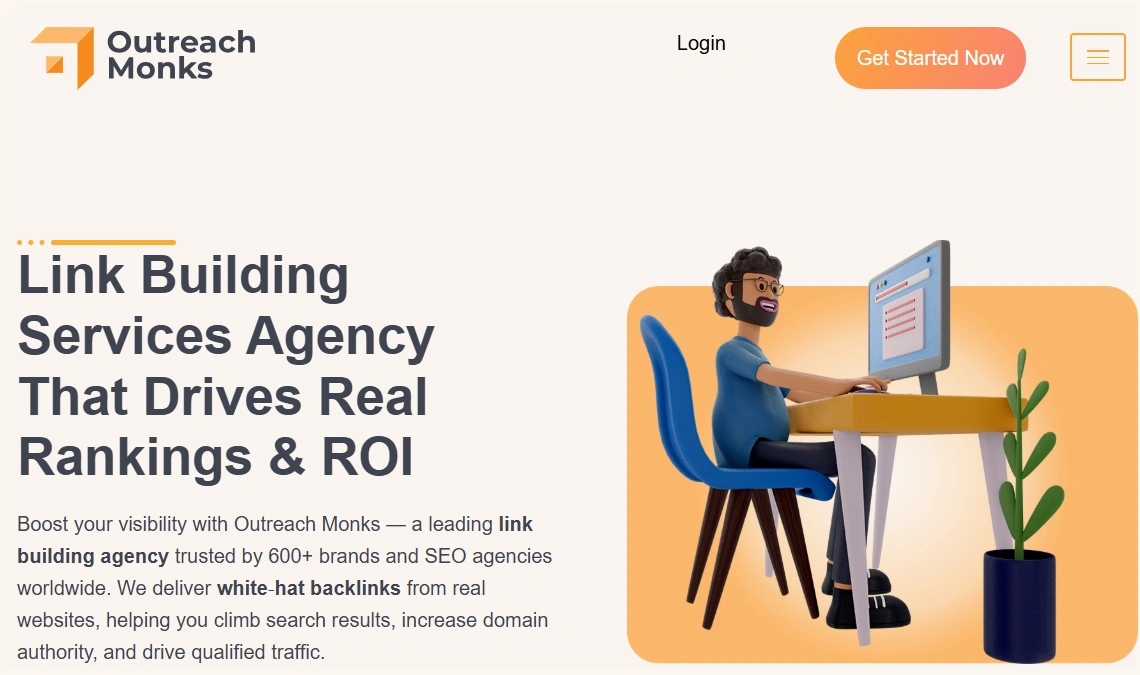
#18 - FatJoe
Entry-level link building for basic authority boosts; not recommended for high-intent e-commerce niches.
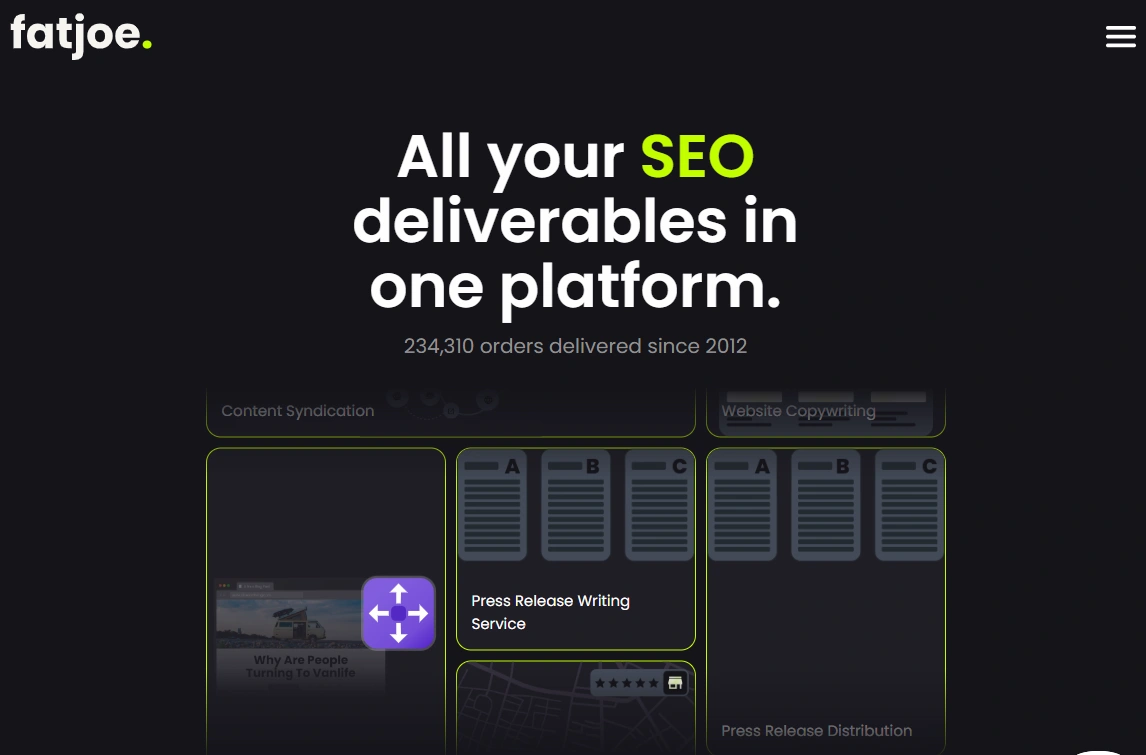
#19 - Aira
Balanced mix of digital PR, SEO, and technical content for brands needing strategic support.

#20 - CEEK Marketing
Lifestyle-focused PR and influencer-led link placements for fashion/beauty e-commerce.
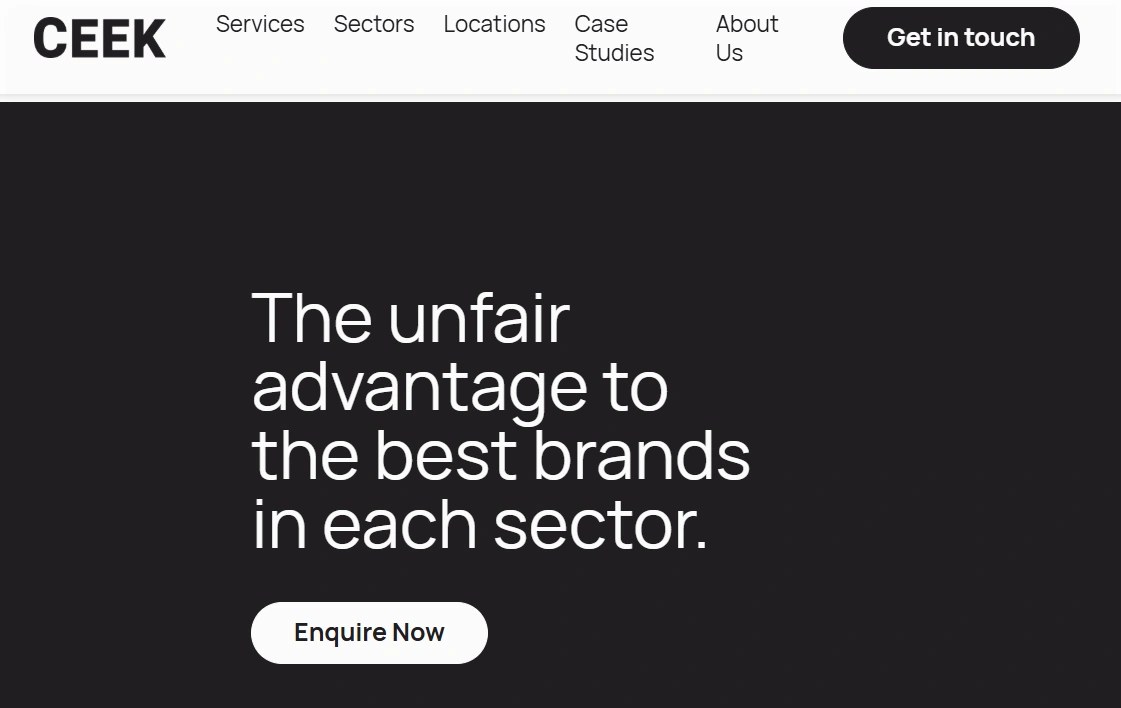
#21 - Bottled Imagination
Creative PR agency with strong storytelling angles for consumer brands.
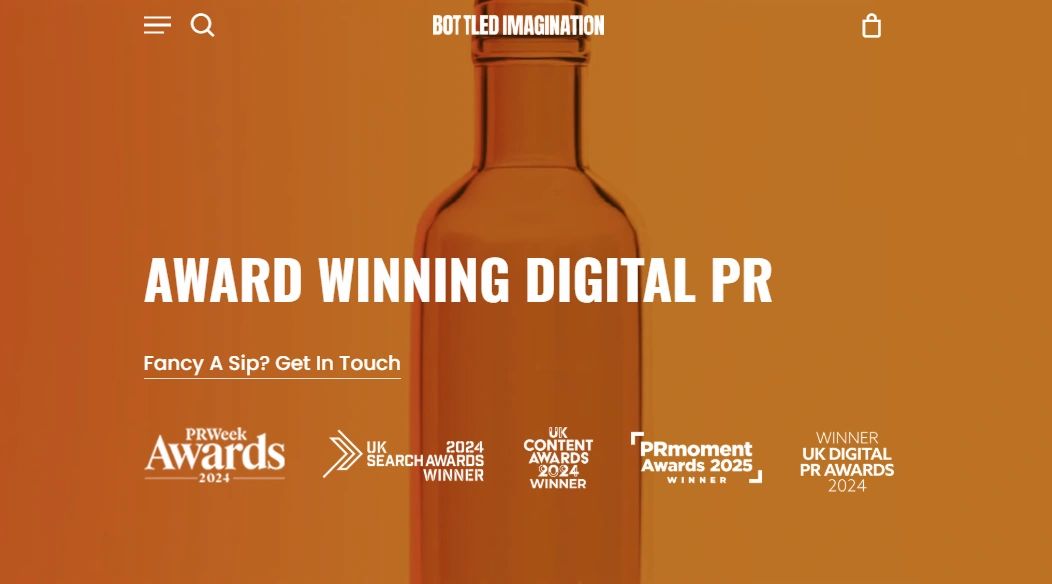
#22 - JBH
Reliable digital PR for lifestyle and home-interior e-commerce brands.
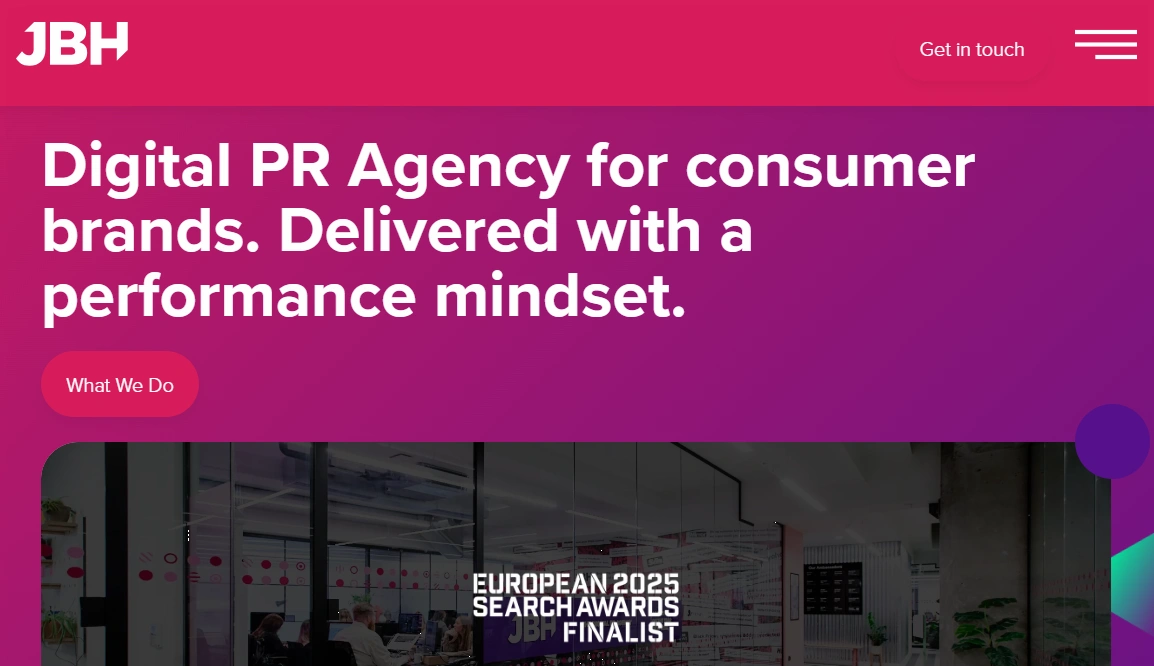
#23 - iProspect
Enterprise-scale global SEO + PR with structured reporting and international reach.

#24 - NeoMam Studios
Data-visual link building with viral-focused assets and strong design integration.
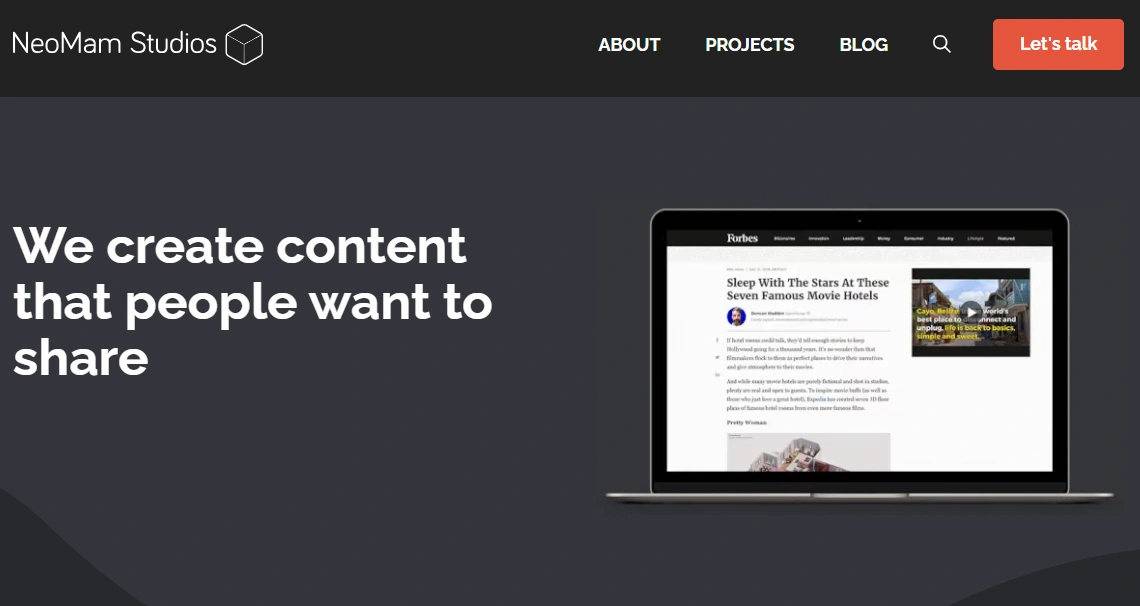
#25 - Pearl Lemon
Diverse service offering with flexible link-building packages for SMEs.

Comparison Table #1 - Top E-Commerce Link Building Agencies at a Glance
Before choosing a link-building partner, it’s important to understand how each agency differs in approach, pricing, methodology, and industry focus. Some specialise purely in digital PR, others prioritise outreach or content-led links, and a handful offer full-stack e-commerce SEO with technical and category-level strategy baked in.
The table below summarises the core strengths of each provider listed in this guide. This helps you quickly compare service types, authority potential, and suitability for UK or US brands expanding into the British market.
Use it as a navigational overview - detailed explanations follow in the individual rankings.
What Is E-Commerce Link Building?
E-commerce link building is the process of earning authoritative, relevant hyperlinks from external websites to your product, category, and informational pages. For retailers, this isn’t just about “increasing link count” - it’s about driving visibility for commercially valuable pages that are often deeply buried in complex site architectures.
Modern e-commerce link building includes:
- Digital PR campaigns
- Reactive news commentary
- Category-level editorial outreach
- Resource placements
- Product feature placements
- Data-led content
- Competitor backlink replication
- Topical authority cluster building
In 2026, Google’s evaluations heavily favour brands with:
- Consistent external credibility
- Strong brand/entity signals
- UK-relevant mentions (for brands targeting British shoppers)
- Clear topical expertise
- Human-led, relevance-first link acquisition
This is why links remain one of the strongest predictors of ranking success - especially in commercial niches where Google heavily scrutinises intent and trustworthiness.
Need High-Quality UK Backlinks? Get relevance-first, authority-building links that actually move rankings → Request a backlink strategy call
Why Link Building Matters for E-Commerce in 2026
As AI Overviews, Shopping Graph data, and Search Generative Experience (SGE) reshape how buyers discover products, links now influence more than just “rankings.”
In 2026, quality links impact:
✔ AI Overview Eligibility
Brands cited in UK journalism are far more likely to appear in AI snapshots. E-commerce sites with no external credibility rarely appear.
✔ Category Page Visibility
Category and subcategory pages - often the highest converters - need strong contextual links to compete.
✔ Brand Authority & Entity Recognition
Consistent citations help Google understand:
- Who you are
- What market do you serve
- Whether you’re relevant to the query
- Whether you're UK-relevant
This is critical for US brands expanding into the UK.
✔ Crawl Efficiency for Large Catalogues
E-commerce stores with thousands of URLs rely on links to help Google prioritise which pages to index and rank first.
✔ Search Trust Signals
With SERPs tightening, Google increasingly rewards brands that appear:
- In credible publications
- In consumer media
- Within relevant editorial contexts
This is exactly what digital PR and relevance-first outreach achieve.
We create powerful stories that earn links, trust, and visibility → Get your digital PR campaign plan
Comparison Table #2 - Link Building Methods Explained
Before investing in a campaign, it’s useful to understand the strengths and limitations of each link-building method. E-commerce sites often require a hybrid approach combining digital PR, evergreen outreach, and niche authority building.
Here is a breakdown of the most common methods:
E-commerce link building is not a one-size-fits-all discipline. Some tactics generate high-authority national links, while others build consistent link velocity or category-specific relevance.
The table below outlines the main link-building methods used by UK and US e-commerce brands in 2026, along with their advantages and disadvantages. Use this overview to identify which methods align with your product range, risk tolerance, industry competitiveness, and budget.
How Long Does E-Commerce Link Building Take to Work?
E-commerce link building follows a predictable - but not instant - timeline. Unlike blog-led content sites, retailers often compete in dense commercial SERPs where Google weighs brand authority, entity signals, and editorial trust more heavily. That means link building works, but it compounds over time.
Below is the realistic timeline for UK and US e-commerce brands in 2026:
Month 1 - Research, Positioning & Asset Creation
The first 30 days are foundation work:
- Full backlink profile audit
- Category hierarchy + ranking opportunity mapping
- Competitor link analysis
- UK publication gap analysis
- Linkable asset creation (data pieces, reports, product features)
- Digital PR angle ideation
- Outreach list building
- Reactive PR system setup
Outcome: The site is prepared for sustainable, consistent link acquisition.
Month 2 - Outreach Begins (Link Velocity Starts)
This is the activation phase:
- First wave of outreach
- First digital PR campaign
- Category-level outreach targeting
- Link velocity modelling begins
- Brand vs non-brand anchor optimisation
- US → UK market-entry relevance planning (if applicable)
Outcome: Links begin landing, but rankings aren’t fully impacted yet.
Month 3 - Authority Compounding
Rankings begin responding as:
- Category pages gain relevance
- Google re-evaluates entity signals
- Your brand starts appearing in UK press
- AI Overviews begin including your brand where relevant
Outcome: Early ranking improvements; category uplift becomes trackable.
Months 4 to 6 - Breakthrough Phase
This is where most retailers see major performance gains, including:
- Higher category visibility
- Improved indexing stability
- Increased Shopping Graph presence
- Strengthened brand trust signals
- AI Overview inclusion
- Significant organic traffic uplift
- Cross-category ranking improvements
Outcome: Link velocity + authority + PR signals shift the website’s perceived trust and relevance.
6-Month Summary
- Months 1–2: Foundations + early links
- Months 3–4: Authority lift + keyword movement
- Months 4–6: Major ranking and revenue-impacting gains
This timeline is consistent across UK and international retailers entering the British market.
A Complete 6-Month E-Commerce Link Building Strategy (2026 Edition)
(Optimised for UK brands and US businesses expanding into the UK)
This is the exact blueprint used by the top-performing agencies in this guide - adapted for modern SERPs, AI Overviews, entity signals and UK publication ecosystems.
Month 1 - Technical & Strategic Alignment
Tasks:
- Backlink audit (toxic link clean-up if needed)
- Competitor link gap analysis
- Market analysis (UK or US→UK depending on brand)
- Category and subcategory priority mapping
- “Link intent” keyword grouping
- Digital PR campaign planning
- Reactive PR system setup
- Journalist list creation (UK media + niche verticals)
- Anchor text + link velocity blueprint
Goals:
- Establish clear “Why should this site rank?” evidence
- Determine which pages need authoritative UK links
- Build campaign-ready assets
Month 2 - Authority Activation
Tasks:
- Launch 1st digital PR campaign
- Begin evergreen category outreach
- Execute niche edits (safely)
- Newsjacking + reactive PR
- Product-led outreach (features, reviews, guides)
- HARO-style alternative systems
- Local UK relevance building (if brand is US-based)
Goals:
- Start winning links
- Introduce the brand to the UK media ecology
- Build the first tier of authority
Month 3 - Relevance Expansion
Tasks:
- Launch 2nd PR story
- Add 2nd wave of category outreach
- Broken link building for high-intent categories
- Supportive blog link building (internal linking superstructure)
- Entity reinforcement (brand mentions, profiles, citations)
- Digital shelf monitoring (if retailer)
Goals:
- Improve category-level trust
- Ensure Google sees deep topical relevance
- Strengthen E-E-A-T profile
Month 4 - Multi-Category Domination
Tasks:
- 3rd campaign (data-led or seasonal)
- Large-scale UK outreach (editorials, resources, guides)
- Competitor replication
- PR-led brand mention expansion
- Build external content clusters
Goals:
- Become “visible everywhere” in your niche
- Secure national and industry publication credibility
- Drive UK relevance for US brands
Month 5 - Authority Consolidation
Tasks:
- Maintain link velocity
- Begin long-form editorial placement strategy
- Secure high-authority industry-specific publications
- Enhance US→UK localisation signals
- Monitor AI Overview behaviour
Goals:
- Cement site as an authoritative, trustworthy entity
- Expand market share across multiple categories
Month 6 - Scale + Profit Phase
Tasks:
- Seasonal PR campaigns
- Major publications outreach
- Brand-led link building
- Cross-category PR
- Competitor disruptor campaigns
- Conversion-rate aligned internal linking upgrades
Goals:
- Maximise organic revenue
- Sustain long-term authority
- Achieve stable UK search dominance
- Prepare for the next 6-month cycle
We specialise in Shopify, WooCommerce, and multi-category stores → Get your e-commerce SEO growth plan
Additional Strategy Layer: US Brands Targeting the UK
For US retailers, an additional track is used:
✔ Build UK entity relevance:
- UK citations
- UK publication mentions
- UK-hosted links
- UK journalist quotes
- UK seasonal PR stories
- GBP + UK consumer targeting signals
✔ Localisation signals for category pages
“Colour” vs “Color”, UK measurement units, GBP-first pricing, UK supplier references, etc.
✔ Align with UK shopping behaviour
Different seasonal peaks, search intent, and category demand vs the US.
✔ British media trust signals
UK publishers carry disproportionate weight in UK SERPs. This ensures you appear in UK‐specific AI Overviews and high-intent commercial searches.
FAQs: E-Commerce Link Building (2026 Edition)
1. What is e-commerce link building?
E-commerce link building is the process of earning authoritative, relevant hyperlinks to your online store’s category pages, product pages, and supporting content. Unlike traditional link building, which often focuses on blog content, e-commerce link acquisition prioritises commercially valuable URLs that directly influence revenue.
In 2026, link building extends beyond guest posting and outreach - it includes digital PR, product placement PR, data-led campaigns, resource link acquisition, competitor gap analysis, and entity-building for Google’s AI Overviews.
For UK and US brands targeting British consumers, links from UK-based publications play a major role in helping Google understand local relevance. When done properly, link building increases rankings, improves crawlability across large catalogues, strengthens brand authority, and drives sustainable organic traffic growth.
2. Why is link building still important in 2026?
Despite AI Overviews reducing organic visibility, backlinks remain one of the most reliable ways for Google to judge trust, expertise, and relevance. In commercial categories where search intent is competitive (fashion, home, electronics, beauty, supplements), Google relies heavily on external signals to determine which brands deserve to appear in the results - and in AI snapshot panels. Links also support entity recognition, allowing Google to correctly associate your brand with key product verticals and UK search behaviour. In 2026, Google’s spam updates have eliminated low-quality link vendors, making genuine editorial links more valuable than ever.
High-authority UK publications and industry-specific editorial placements are especially powerful for retailers expanding into the UK market. Simply put: link building remains essential for rankings, trust, and long-term growth.
3. How many links does an e-commerce website need?
There is no fixed number - it depends entirely on your niche, competitors, and category complexity. Broadly, competitive UK e-commerce verticals like furniture, fashion, health, sports, and beauty often require 30–100+ authoritative links per year to keep pace with rivals. Smaller or niche product categories may only need 5–20 high-quality links per month to maintain competitive velocity.
What matters more than the total is link relevance, link velocity, and link distribution across category levels. Google evaluates whether your site earns links in a natural, topic-aligned pattern.
For US brands entering the UK market, additional UK-hosted links are required to establish local authority. Ultimately, the goal is not a number - it’s sustained authority-building that matches or exceeds the top-performing competitors.
4. How long does link building take to see results?
Most e-commerce sites see meaningful movement within 8–12 weeks, with major gains typically appearing between 3–6 months. This timeline depends on factors including category competitiveness, site history, technical health, content quality, and whether you’re already recognised as a credible brand. Google needs time to recrawl your site, reassess your backlink profile, and re-evaluate your entity signals - especially if you’re entering the UK market from the US.
Digital PR campaigns often land results faster, while category-level outreach and authority-building tend to compound over time. The strongest results occur when link building is combined with technical SEO fixes, strong internal linking, and regular content production. Link building works - but it works consistently over time, not overnight.
5. What makes a “high-quality” link in 2026?
A high-quality link is defined by more than Domain Authority. In 2026, the strongest links share three traits:
- Relevance - The linking site is topically aligned with your category or product range.
- Editorial Integrity - The link is placed naturally within genuinely useful content from a real website with real readership.
- Authority Signals - The publication has strong trust indicators, a verified editorial team, and appears in Google News or UK media lists.
Google’s algorithms have become dramatically better at detecting spam, PBNs, artificial guest posts, syndicated placements, and low-value outreach links. Modern link building prioritises context, brand fit, and credibility over metrics alone. Links from UK publications are especially valuable for brands targeting British consumers. When evaluating links, focus on relevance and trust - not just numbers.
6. What’s the difference between link building and digital PR?
Link building is the broad practice of acquiring links through outreach, relevance-driven placements, resource linking, niche edits, and category-focused strategy. Digital PR, on the other hand, is the creation of newsworthy, data-led, or culturally relevant stories that journalists want to report on - resulting in high-authority editorial backlinks.
Digital PR produces the strongest authority signals, while traditional link building provides sustained link velocity and category relevance. For e-commerce brands, combining the two delivers the highest ROI: PR for brand trust and national links, outreach for category-level ranking improvements. In 2026, the best-performing SEO strategies blend both disciplines into a single, unified authority-building engine.
7. Should I avoid cheap link-building providers?
In almost every case: yes. Cheap link vendors rely on low-quality websites, expired domains, link farms, AI-generated blogs, and fabricated outreach. In 2026, Google’s link spam systems can detect these patterns within days, leading to ranking suppression, loss of indexation, and long-term risk to your domain. E-commerce websites - especially those with thousands of product URLs - are particularly vulnerable because negative link patterns can affect entire categories.
High-quality link building requires editorial relationships, manual outreach, real content creation, and journalist trust. If a provider is selling “DA-based packages”, “guaranteed placements”, or extremely low-cost bundles, assume the worst. Invest in strategic, relevance-first link acquisition instead.
8. What are typical link-building costs in the UK?
Pricing varies depending on the type of work involved:
- Digital PR campaigns: £1,500–£10,000+ per campaign
- E-commerce link building packages: £750–£3,500+ per month
- White-label link building: £XXX–£XXX depending on scale
- Editorial outreach links: £150–£500+ per placement (quality-dependent)
- Niche edits: £50–£300 each
- Full-service authority building: £2,000–£15,000+ monthly
Costs reflect the expertise required, the editorial difficulty, and the relevance of publications. US brands entering the UK typically invest more initially to establish local authority. Cheap backlink packages should be avoided - they almost always lead to long-term SEO damage.
9. How do I measure link-building ROI?
Modern ROI measurement goes beyond link numbers. Instead, evaluate:
- Category page ranking improvements
- Organic revenue growth
- AI Overview visibility
- Brand mention frequency
- Click-through rate improvements
- Keyword movement vs competitors
- Conversion uplift from organic channels
- Domain-level trust signals
Tools like Google Search Console, GA4, and third-party rank trackers can show short-term movement, but link-building ROI compounds over months. For UK-facing SEO, retailer-specific metrics like category market share, Shopping Graph visibility, and product discoverability provide a clearer picture. Properly executed link building is one of the highest-ROI long-term marketing channels available.
10. Can you rank without link building?
In very low-competition niches - possibly. But for any meaningful e-commerce category, especially in the UK, it is almost impossible to achieve sustainable rankings without authoritative external links. Category pages in particular require external validation for Google to trust them. Even if you have perfect technical SEO and amazing content, competitors with stronger backlink profiles will consistently outrank you. For US brands entering the UK market, local authority is essential - meaning UK links, UK citations, UK PR, and UK user intent mapping. In 2026, link building isn’t optional - it is foundational.
11. Are press releases still useful?
Press releases alone do not move rankings - Google ignores syndicated wire links - but targeted press releases integrated into digital PR campaigns can contribute to brand positioning and entity-building. When used strategically, they work as supporting assets rather than core link building tools.
Press releases are most useful for major business announcements, product launches, US→UK expansion announcements, and journalist briefings. However, they should never be relied upon as a primary method of link acquisition. Editorial links matter far more than syndicated ones.
12. Are HARO alternatives still good for e-commerce?
Yes - but effectiveness has changed. Traditional HARO has declined, but modern journalist request platforms and proprietary marketplace systems still generate high-quality expert links. For e-commerce brands, this is particularly effective for: product expertise, founder commentary, category insights, and trend analysis. However, it works best as a supplement to digital PR and outreach, not a replacement. UK journalist requests are especially valuable for US brands trying to build British credibility. The key to success is speed, quality of commentary, and understanding what journalists actually need for their stories.
13. What’s the best link-building strategy for Shopify stores?
Shopify stores benefit from category-first link building, internal linking enhancements, and product-led PR. Shopify sites often have thin product pages, duplicate content structures, and limited content blocks - meaning category pages become the primary ranking battleground. Strong strategies include: PR-led authority campaigns, category relevance outreach, influencer-led product mentions, evergreen resource link building, and editorial reviews. Combining external links with internal linking superstructures dramatically improves crawls and ranking consistency. For UK targeting, British publisher links are essential.
14. How do Google’s AI Overviews affect link building?
AI Overviews rely on credible sources. Google pulls brands, facts, and recommendations from publishers it trusts. Brands with strong digital PR and consistent editorial mentions appear more frequently - especially for high-intent e-commerce queries. Link building now affects whether Google sees you as a trusted source worthy of AI inclusion. Without a strong external authority, it’s very difficult to appear in these panels. In 2026, link building is no longer just about ranking - it’s about visibility across all search surfaces, including AI.
15. What is a safe link velocity for e-commerce?
Safe link velocity depends on your niche and competitors. Most UK e-commerce categories can support 10–40 links per month, provided they are relevant and naturally earned. Large brands or US retailers entering the UK may build links faster without risk because Google expects higher activity levels during market expansion. The safest approach is to match or slightly exceed your top competitors’ monthly link growth while maintaining relevance-first acquisition. Dramatic spikes from low-quality domains can trigger Google’s link spam systems, so consistency and editorial quality are more important than speed.
Ready to Grow Your E-Commerce Rankings?
Appear Online helps UK e-commerce brands - and US retailers expanding into the UK - grow through relevance-first link building, digital PR, and scalable outreach.
Whether you need:
- Authoritative UK links
- Category-level SEO improvement
- A digital PR partner
- White-label link building
- A full 6-month SEO expansion plan
We can help. Contact us today, book a consultation, or jump on a call to get your bespoke e-commerce link-building strategy.
References:
https://blog.google/products/search/generative-ai-search/
https://blog.google/products/shopping/shopping-graph-explained/
https://cardiffbusinessawards.com/award/2024-2/
https://developers.google.com/search/blog/2025/11/update-on-our-efforts
https://developers.google.com/search/docs/appearance/spam-updates
https://developers.google.com/search/docs/fundamentals/creating-helpful-content
.avif)

